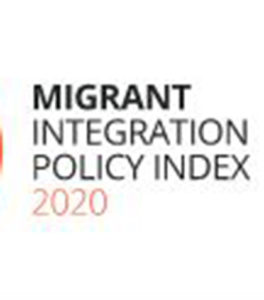Global index reveals nations friendly to migrants
Australia is among the top ten countries in the world when it comes to its immigrant-friendly policies, according to a new index.
The ranking is from the Migration Integration Policy Index (MIPEX) released this week, which ranks the immigration policy performance of 52 countries from five continents.
 Australia received a score of 65 in the index, placing it sixth from the top in recognition of its comprehensive, migration and settlement policies and programs that emphasize equal rights, opportunities, and security for newcomers.
Australia received a score of 65 in the index, placing it sixth from the top in recognition of its comprehensive, migration and settlement policies and programs that emphasize equal rights, opportunities, and security for newcomers.
The index said Australia has “adopted a comprehensive approach to integration, which fully guarantees equal rights, opportunities and security for immigrants and citizens”.
“Its policies generally encourage the public to see immigrants as their equals, neighbours and potential citizens,” the index said.
The MIPEX Index is an international benchmark for integration policies and the most used by policymakers, civil society, researchers, and the media. The policies that governments put in place affect how easily newcomers can find jobs, access language and education opportunities, develop a sense of belonging, and grow to become citizens who participate
According to MIPEX research, integration policies emerge as one of the strongest factors shaping the public’s willingness to accept and interact with immigrants and immigrants’ own attitudes, sense of belonging, participation, and even health in their new home country.
MIPEX measures eight areas of integration policy: labour market mobility, education, political participation, access to nationality, family reunion, health, permanent residence and anti-discrimination.
Through quantitative analyses, the MIPEX research team identified three key dimensions that underlie all areas of a country’s integration policy.
These three dimensions help to describe a country’s overall approach to integration: Basic rights: Can immigrants enjoy comparable rights as nationals?, Equal opportunities: Can immigrants receive support to enjoy comparable opportunities as nationals?, and; Secure future: Can immigrants settle long-term and feel secure about their future in the country?
Countries have been then sorted in groups based on their scores on those dimensions. These groups represent different country’s approaches to integration.
The four groups are characterised under these headings: Comprehensive integration, a comprehensive approach to integration guarantees equal rights, opportunities and security for immigrants; Equality on paper, meaning that immigrants enjoy equal rights and long-term security, but not equal opportunities; Temporary integration, meaning that immigrants enjoy basic rights and equal opportunities, but not equal security, as they face obstacles to settle long-term; Immigration without Integration (Integration Denied), meaning that immigrants are denied basic rights and equal opportunities, even if they are able to settle long-term in the country.
The top ten countries friendliest to migrants were: Canada (80), Finland (85), New Zealand (77), Portugal (81), Sweden (86), Australia (65), Belgium (69), Brazil (64), Ireland (64) and USA (73).
The countries with the least friendly migration policies were: China (32), Cyprus (41), India (24), Indonesia (26) and Russia (31).
Read more here: https://www.mipex.eu/key-findings












